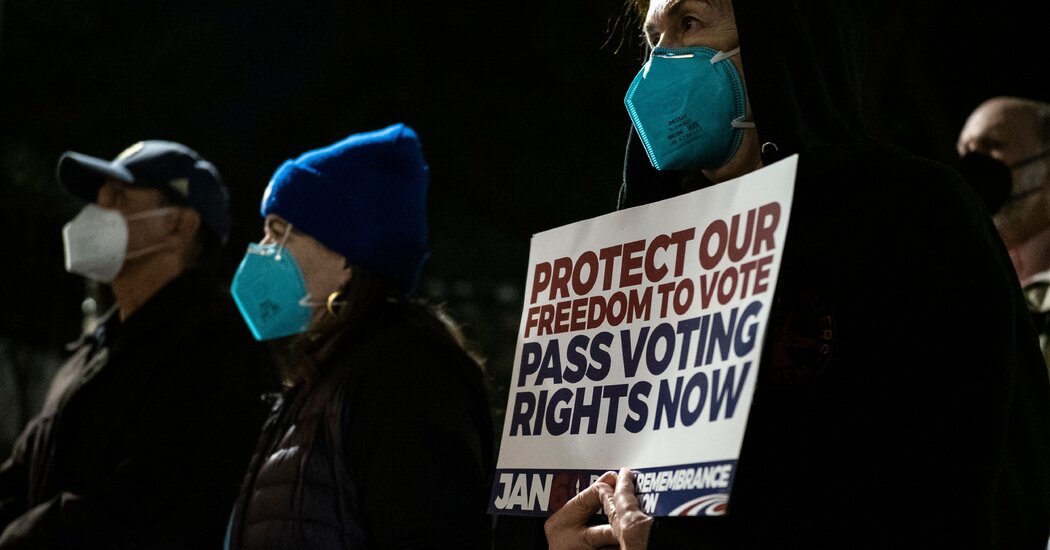
Although Reeves is the only lawmaker in this group to have called the Democratic election bill “unconstitutional,” the clear implication of the Republican argument is that any federal regulation of state elections is constitutionally suspect. We already know that this is wrong — again, the Constitution gives Congress the power to regulate state elections for federal office — but it’s worth emphasizing just how wrong it is.
In addition to the Supreme Court, which has affirmed — again and again — the power of Congress to set “the Times, Places and Manner” of federal elections, there are the framers of the Constitution themselves, who were clear on the broad scope of the clause in question.
Alexander Hamilton defends it in Federalist 59 as a necessary bulwark against the interests of individual states, which may undermine the federal union. “Nothing can be more evident than that an exclusive power of regulating elections for the national government, in the hands of the State legislatures, would leave the existence of the Union entirely at their mercy,” Hamilton writes.
“If the State legislatures were to be invested with an exclusive power of regulating these elections,” he continues, “every period of making them would be a delicate crisis in the national situation, which might issue in a dissolution of the Union.”
“Every government,” he says with emphasis, “ought to contain in itself the means of its own preservation.”
Similarly, as the historian Pauline Maier recounted in “Ratification: The People Debate the Constitution, 1787-1788,” James Madison saw the Election Clause as a measure that would “allow Congress to use its power over elections against state electoral rules that were ‘subversive of the rights of the People to a free & equal representation in Congress agreeably to the Constitution.’”
The 15th Amendment to the Constitution, ratified in 1870, expanded and reaffirmed the power of Congress to regulate federal elections, stating, “The right of citizens of the United States to vote shall not be denied or abridged by the United States or by any State on account of race, color, or previous condition of servitude” and “The Congress shall have power to enforce this article by appropriate legislation.”







